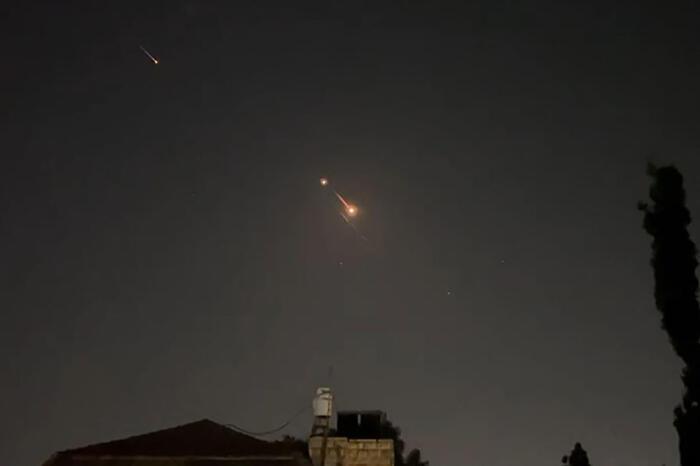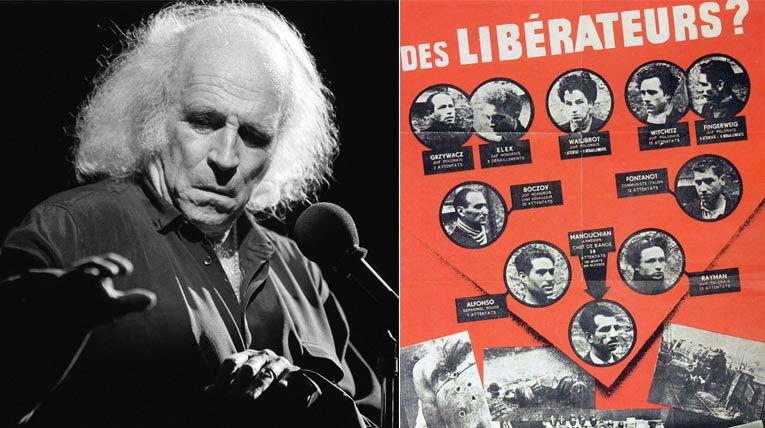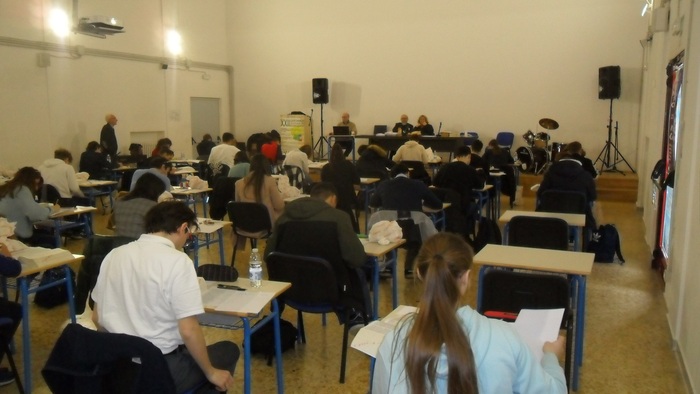One might wonder what sense it makes to speak of poetry when the millenarian loudspeakers, the chilling statistics and the hymns in favor of resilience begin to be replaced by a four-phase de-escalation and occasional reverse gear. During the confinement, two attitudes regarding verse writing have been verified: the vindication of its therapeutic power, halfway between homeopathic medicine and the balm of Fierabrás, and the praise of its ability to accompany us in house arrest. At the end of the day, poetry summons the two necessary conditions in a dialogue: voice and presence, even if it is a presence bound in paperback or a voice stored in virtual archives. Now that we have left the front door ajar, with one foot in the hallway and the other on the edge, perhaps it is time to conceive of the lyrics as a way of awakening after general anesthesia. So open your eyes wide to the following recommendations.
Between myth and Me Too. The title of Gavieras (Visor), with which Aurora Luque (Almería, 1962) has obtained the Loewe Prize for Poetry, is an explicit tribute to Ana Santos Payán, the longed-for founder of the El Gaviero publishing house, and an implicit defense of the role that women have played in mythology and history. In fact, throughout the book we find numerous female figures who do not just peek at the horizon from the topsail, but are willing to take the helm of the speech. In this logbook, which reflects the journey of a navigable and wandering life, the gods of the Hellenic pantheon and the ambiguous signs of consumption enter into a pleasant conversation. Here again Luque demonstrates her ability to combine in a peculiar postmodern cocktail the seduction of the past and the uncertainty of the present. Winks to Greco-Latin culture and references to contemporary geopolitics are enriched with intertextual and intermediate quotes that range from Safo to the filmmaker Agnès Varda, including Chantal Maillard, Antonio Machado and TS Eliot.
This aesthetic recycling is also seen in the tuned version of a hit by Sabina, which transforms the charismatic lame pirate of the singer-songwriter into an intrepid cabin boy who aspires to become the captain of his own destiny. Apart from that lucid and playful will, the author connects with the genealogy of those women who challenged the role assigned to them by a patriarchal society: the dramatic monologue put in the mouth of the activist Isabel Oryazábal or the story of the insubordination of the child prodigy Marisol before the expectations of adults. There is also no shortage in these pages of the litany to an Aphrodite who is reborn every day from the foam, a melancholic carpe noctem after plucking the roses at dawn, or a metapoetic reflection that explores the similarities between verbal creation and erotic experience. Despite its apparent tonal heterogeneity, Gavieras conquers a wise harmony to offer the testimony of an identity between myth and Me Too .
An eloquent map. Raquel Vázquez (Lugo, 1990) has won the Loewe for Young Creation with Although the Maps (Visor), a book that shares with Gavieras the nomadic condition of the poetic voice. If "pain is the compass", now we find an eloquent map in which the journey through a ritualized Japan (a Hiroshima where "the atomic bomb continues to fall", the Kumano shrines) and the internal journey through inhospitable regions or dystopian landscapes. Proof of the latter is Fog Runner , which updates the replicator Roy Batty's monologue in Blade Runner as a lesson on disappointment: “Beyond the Tannhäuser door / where everything is fiction. [...] // It rains on the keyboard of the present ”. The layout of the intimate cartography, the forcefulness of judgmental outcomes and the unprejudiced revisiting of eternal themes are the accoutrements with which Raquel Vázquez goes to battle. It is not bad baggage.
Political identities and identity politics (1). Indispensable name of our theatrical scene - The geometry of wheat won in 2019 the National Prize for Dramatic Literature―, Alberto Conejero (Vilches, Jaén, 1978) is also a repeat poet. In this house (Letra Versal), his second book, oscillates between the lyrical claw and the expressionist tear. And although the patio of this house is particular, it is framed in a community of neighbors: thus, the collective ties cross stanzas that mix the history of Spain with the family album, inviting us to a rite of initiation in communion with nature and they build a shared territory, both symbolic space and open border. Although Conejero's teachers (Lorca, Cernuda, Aleixandre) are visible in his poetic world, we are not faced with a voice test, but rather with the confirmation of a speech of deep resonance. Here is one of the great revelations of this strange spring.
Political identities and identity politics (and 2). Ángelo Néstore (Lecce, 1986) agrees with Alberto Conejero in the defense of LGTB rights, in his teaching role and in his interest in theatrical writing. Likewise, Néstore is behind the publisher Letra Versal, which hosts the publication of En este casa . However, the similarities end here. If Conejero privileged the examination of a political identity, Néstore prefers to focus on the autopsy of a masculinity that has imposed its dominance in various orders, from mediated rape to manspreading . Along with this aspect, Hágase mi will (Pre-Texts), with which he won the Emilio Prados Prize, makes a plea in favor of a queer subjectivity that escapes gender clichés to identify with the mutant figure of the cyborg (“meat that abandons itself to being meat / and nothing else ”). Between the (ad) family inheritances and the chronicle of a body, Néstore confirms the good omens of Impure Acts (2017) in a book perhaps less surprising than the previous one, but endowed with more critical ribbing.
Mexican pastoral. The needle in the haystack (Visor), by Carmen Boullosa (Mexico City, 1954), has won the last Casa de América Award. Better known in our parts as a narrator than as a poet, Boullosa twists the conventions to build a choral altarpiece in which the metaphorical turmoil and crude realism, the feverish psalmody and the colloquial slang, the untamed nature and the urban coven come together. Out of these wigs emerges an authentic "Mexican pastoral" that reviews some defining features of the country's idiosyncrasy: the tragic fatum , the eschatological note, the violence or the scourge of a social inequality that is exposed under the format of the fable with animals ('De flamingos') or polyphonic sampling ('Luna, o día, o qué'). Between sensory exuberance and rational anchorage, Boullosa's incisive gaze reflects national conflicts in the mirror of the private.
News list
Gavieras . Aurora Luque. Madrid. Visor, 2020. 84 pages. 12 euros.
Although the maps . Raquel Vázquez. Madrid. Visor, 2020. 66 pages. 12 euros.
The needle in the haystack . Carmen Boullosa. Madrid. Visor, 2019. 46 pages. 12 euros.
In this house . Alberto Conejero. Malaga. Versal Letter, 2020. 74 pages. 11.90 euros.
My will be done . Angelo Néstore. Valencia. Pre-Texts, 2020. 72 pages. 14 euros.





/cloudfront-eu-central-1.images.arcpublishing.com/prisa/JNAMK37HFIZKML76SWBTDTD3QI.jpg)



